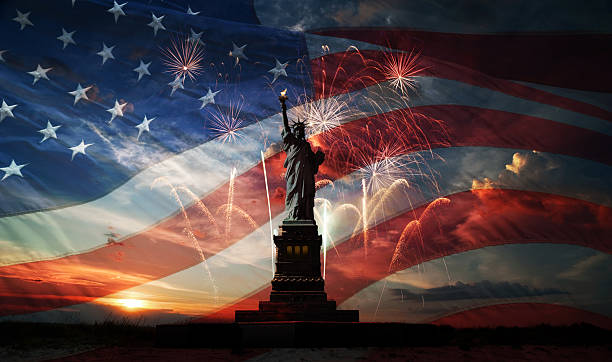 ABC News(WASHINGTON) — Important legal cases are playing out in multiple federal courts Friday where the Donald Trump campaign and its allies are being forced to promise not to intimidate voters.
ABC News(WASHINGTON) — Important legal cases are playing out in multiple federal courts Friday where the Donald Trump campaign and its allies are being forced to promise not to intimidate voters.
This comes after the Republican presidential candidate and his supporters have ramped up rhetoric in recent weeks about how the election is being “rigged” and calling for believers to, as he said in Detroit in October, “go and watch these polling places. Make sure it’s on the up and up.”
Arguments that the Trump campaign and the Republican National Committee are coordinating voter intimidation efforts were already heard in Nevada and Arizona Thursday. Courts in other states are also expected to hear similar cases.
The Republican National Committee and its members are prohibited from certain poll-monitoring activities because of a legal settlement from the 1980s over allegations they intimidated minority voters.
The RNC claims it has no agreements with the Trump Campaign regarding “voter fraud, ballot security, ballot integrity, poll watching or poll monitoring.”
But responsible poll monitoring can help combat voter fraud, Michael Thielen, executive director of the Republican National Lawyers Association, said.
“Every fraudulent vote overrides a legitimate, real vote and disenfranchises an honest, eligible voter,” Thielen told ABC News.
He pointed to allegations in Florida, including one where an election worker reportedly filled in ballot choices that were left blank and another alleged instance where people who requested absentee ballots found that their votes had been cast by an imposter.
The issue of voter intimidation efforts is one of the most pressing versions of disenfranchisement in this year’s race, said Myrna Perez, the deputy director of New York University’s Brennan Center for Justice’s Democracy Program.
Perez said their watchdog organization has seen examples of “both the lawful disenfranchisement and the unlawful disenfranchisement” of voters throughout the past year or two.
She included restrictive voter ID laws and the Supreme Court’s 2013 changes to the Voting Rights Act as examples of “lawful” disenfranchisement, but those are not the focus of the last-minute court actions under way now.
“I think in this instance, for the first half of the year, people were concerned about the formal state policies and practices and, right now, folks are concerned about what may be happening on Election Day,” she said.
“What happens when individuals get involved in monitoring and policing our polls, and what unofficial actors are going to be doing.”
Kristen Clarke, the president and executive director of the Lawyer’s Committee for Civil Rights, said they have heard a variety of complaints about different kinds of voter intimidation during early voting, and not necessarily in the forms that the courts are worried about.
She gave one alleged example of a boss in California pressuring a subordinate to vote a certain way, and a security person at a polling place in Ohio who allegedly said the parking lot was full, prompting many voters to leave.
Those aren’t the only stories they’ve heard.
“We have seen an increase in the number of complaints regarding alleged voter intimidation,” Clarke told ABC News. “Many of these complaints come from voters in Texas and Florida. We are spending more time on the phone with voters working to resolve those complaints.”
Voter intimidation is not the only way that activists are worried about how groups could stop some people from getting to vote on Tuesday.
During a campaign rally in Raleigh, North Carolina, Wednesday, President Obama decried the recent claims that voters’ names were allegedly being systematically removed from voter registration rolls in the state.
“The list of voters Republicans tried to purge were two-thirds black and Democratic,” he charged. “That doesn’t happen by accident. It’s happening in counties across this state.”
“There was a time when systematically denying black folks to vote was considered normal as well. … It was not that long ago that folks had to guess the number of jelly beans in a jar or bubbles on a bar of soap or recite the Constitution in Chinese in order to vote. It wasn’t that long ago when folks were beaten trying to register voters in Mississippi,” he added.
Voter-roll purges have come up in other states in the past few months and during the primaries, as state and county boards of election try to update their rolls to clear them of anyone who has died or moved out of state.
The North Carolina NAACP filed an emergency application for a temporary restraining order to stop the state and county boards of election “from cancelling the voter registrations of thousands of North Carolina voters who have been targeted in coordinated, en masse challenge proceedings brought in the final weeks and months before Election Day.”
Penda Hair, the lead attorney working on the North Carolina NAACP’s case, said that they were “dismayed” about the findings that hundreds of voters were reportedly removed, but they’re actively working to ensure that these actions don’t stop voters from turning out.
“The North Carolina NAACP is communicating to voters that we have their back,” he said, “and they should not in any way feel intimidated but we do know there are efforts.”
Copyright © 2016, ABC Radio. All rights reserved.



